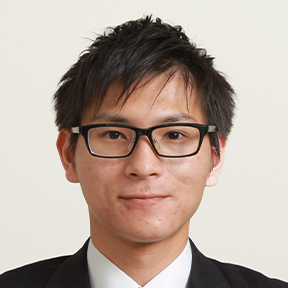2024.03.21

Dai Nippon Toryo has launched a business in the area of life sciences! Why did DNT launch the world’s first “extracellular vesicle immunochromatographic kit” on the market?

DNT’s business is not limited to coatings!
In July 2023, Dai Nippon Toryo (DNT) launched “Extracellular Vesicle Immunochromatographic
Kit Exorapid-qICTM (CD9).” This is the world’s first immunochromatographic kit
for research
use targeting “extracellular vesicles (EVs),” particles secreted from cells.
An
immunochromatographic kit refers to a test kit to determine positivity for certain targets
by appearance of a colored test line in the region on which a test sample has been applied,
as represented by diagnostic kits for influenza virus or coronavirus. Why did DNT, a company
specialized in coatings, launch a product in the area of life sciences onto the market? This
is closely linked to the company’s nanoparticle technology.
Our 20-year experience in nanoparticle technology led us to believe that “we can produce such a product ourselves”

EVs, contained in blood and urine, are becoming more and more a focus of research, since
they contain information on the original cells from which they have been secreted. For
example, progress in research on EVs secreted from cancer cells is expected to allow early
diagnosis of cancer.
“Extracellular Vesicle Immunochromatographic Kit Exorapid-qICTM (CD9),” which
contributes to
promotion of extracellular vesicle research, was born from a combination of DNT’s research
on “anisotropic noble metal nanoparticles” and Shimadzu Corporation’s research on “life
sciences.”
In general, coating utilizes a technology involving stable dispersion of particles in
liquid.
“By applying our coating technology, we have pursued research on a technology to stably
synthesize anisotropic (non-spherical shape) noble metal nanoparticles, such as disc-shaped
gold nanoparticles (gold nanoplate) and silver nanoparticles (silver nanoplate), for
approximately 20 years,” said Mr. Yoshikazu So and team leader Mr. Yuta Miyazawa, Functional
Materials Development Group, Speciality Business Dept., DNT.

EVs
Immunochromatography test strip
Gold nanoplate-labeled antibodies
(a) When a sample solution containing EVs is applied on a test strip, EVs are captured by
antibodies immobilized on the test strip.
(b) When gold nanoplate-labeled antibodies are applied, they bind to the EVs immobilized on
the test strip in Step (a).
(c) When gold nanoplate-labeled antibodies accumulate in the part where EVs have been
captured, a blue line is visually observed.
“We developed anisotropic particles originally as a coating material that cuts off infrared
light emitted from displays. Then, in a search for other applications of this anisotropic
particle technology, we found its potential in the life sciences market. In
immunochromatography, metal nanoparticles have been widely used to have a test line develop
a color. However, we noted that this method was disadvantageous in that due to few color
variations, test results are difficult to see when several viruses are simultaneously
tested. Then, with the belief that we, as a coating company, can help develop a multicolor
test kit, we changed direction and strived to enter the life sciences area,” explained Mr.
Miyazawa.
From 2015, DNT ran a booth at exhibitions to introduce the technology to diagnostic agent
manufacturers. Each time, however, the response of such manufacturers was that they
preferred utilizing mature, commercialized technology.
“When it comes to testing, reliability is important, and so, most of such manufacturers
place an emphasis on adoption results of products or technologies.
Hence, we were unable to find the first company that would adopt our technology. Then, we
began to think that it
might be earlier to create a test kit ourselves in around 2017. Just around that time, our
brother company Shimadzu Corporation became interested in our technology, and a joint
development project with them started,” Mr. Miyazawa explained.
Mr. Miyazawa was temporarily transferred to Shimadzu Corporation and worked at the Shimadzu
Corporation research facility. There he himself was involved in the research on cancer
diagnosis using EVs secreted from cancer cells.
“EV detection experiments are expensive and time-consuming. Some experiments need a device
costing over 10 million yen or take as long as 3 to 5 hours to complete. We wondered what we
should do to make research more rapid and conceived that if immunochromatography enables
low-cost, rapid testing, there would be a high demand for the technology-based product. This
expectation increased our motivation to develop such a product,” said Mr. Miyazawa.
Entered an unformed market with a prototyping strategy
The market of EV-based research reagents is growing at an annual rate of more than 30%.
Given that DNT’s kit is the first-to-market, proposal-based product, there still remain
uncertainties, although high demand is expected. Nevertheless, they chose to face the
challenge of “putting it on the market even a day earlier.”
“We judged this product to be the most amenable to a prototyping strategy, in which a
product is trial-marketed and then real customer feedback is incorporated in the improvement
and development processes. While we were aiming at early launch of the product, we had to
ensure satisfactory quality, needless to say. In a struggle to overcome this challenge, we
conducted a lot of experiments, with several experiments run in parallel, allowing for any
unexpected results from the experiments. Moreover, as we, a coating company, do not possess
the full set of manufacturing equipment, we asked for help from other companies. Setting up
the system for that is also our first experience,” said Mr. Miyazawa.
In the process of this development project, a patented technology of TOPPAN Inc. also became
necessary. Thus, we proceeded with the research and development, blessed with cooperation
and kindness of many people. The completed “Extracellular Vesicle Immunochromatographic Kit
Exorapid-qICTM (CD9)” does not need dedicated devices, unlike conventional EV
detection
experiments, and this has reduced the initial cost. Furthermore, the kit has reduced the
testing time to approximately 45 minutes and is also easy to handle, making it ideal for EV
research start-up or simple evaluation.
In fiscal year 2023, DNT is widely promoting the product by disseminating information
through presentations at academic meetings and webinars, with an eye toward achieving a
large market share.
They ran a booth at the annual meeting of the Japanese Society for
Extracellular Vesicles, held in October 2023, to disseminate information to researchers.
They will continue with efforts to refine the extracellular vesicle immunochromatographic
kit and at the same time to pursue the development of new technology using noble metal
nanoparticles.
“Noble metal nanoparticles absorb a certain wavelength depending on the shape and thus allow
large color variations. We are receiving inquiries from a lot of customers who would like to
use the technology. We are also pouring efforts in sales of metal oxide nanoparticles, which
are applied to anti-reflection film and the like. We showcased the metal oxide nanoparticles
in ‘FILMTECH JAPAN,’ held in October 2023, and are receiving more and more inquiries about
them as a coating material,” said Mr. Miyazawa.
Making things is challenging and laborious. However, Mr. Miyazawa and Mr. So say, “whether
taking the first step or not determines our future, and success of our efforts requires the
support and cooperation of the people involved. We hope we can work for a successful future
together with people from various fields, not limited to those belonging to Mitsubishi
Group, with a never-give-up spirit.”
With its catchphrase “DNT’s business is not limited to coatings!” in mind, DNT will dedicate
its efforts to opening up new business in wide-ranging fields.
INTERVIEWEE

YUTA MIYAZAWA
Team Leader, Functional Materials Development Group, Speciality Business Dept.

YOSHIKAZU SO
Functional Materials Development Group, Speciality Business Dept.
Dai Nippon Toryo Co., Ltd.
SR Bldg. NAGAHORI, 1-18-11 Minamisemba, Chuo-ku, Osaka, Japan
Established in 1929. A comprehensive coating manufacturer with the mainstay business of structure anticorrosive coatings/heavy-duty anticorrosive coatings and building material coatings. Boasts the top market share in structure anticorrosive coating products. Conducts research in the fields of “analysis and physical properties,” “paint and anti-corrosion theories,” “functional polymer material design,” and “coat film formation and coating technologies.” In addition, is actively engaged in new business areas including antistatic coating materials, refractive index adjusting coating materials, and heat-ray absorbing coating materials.
